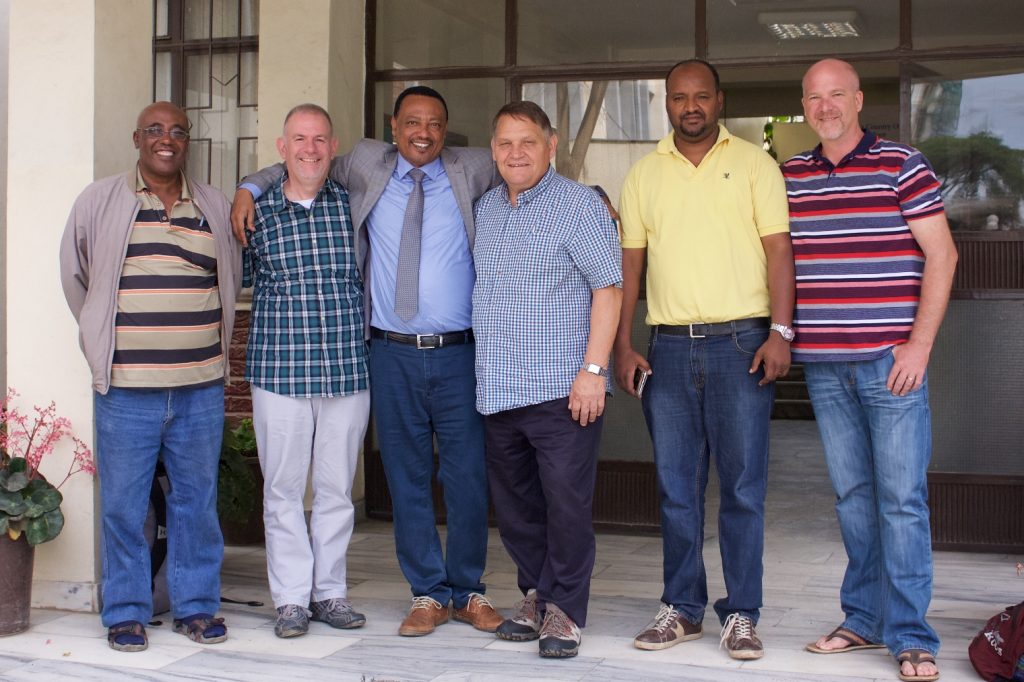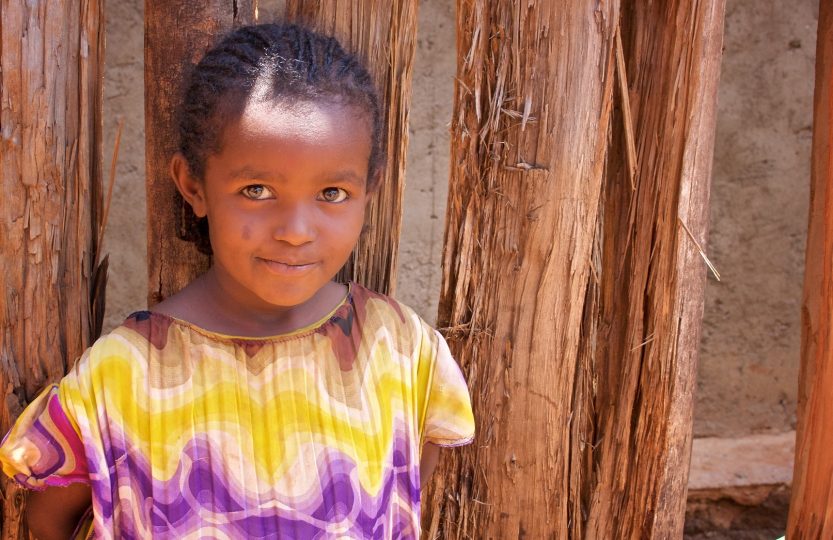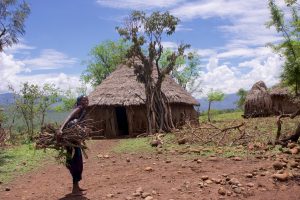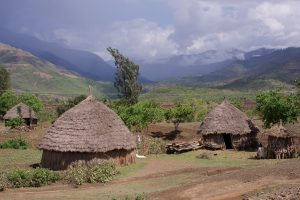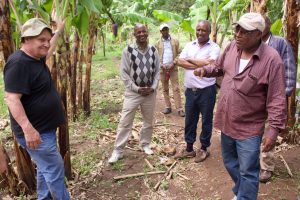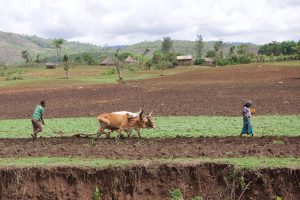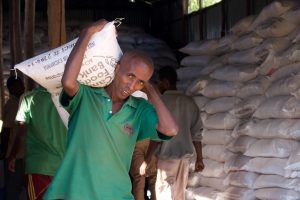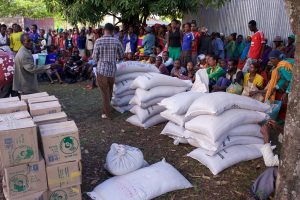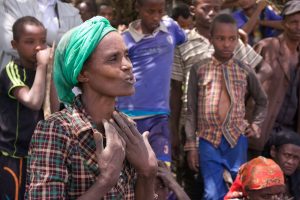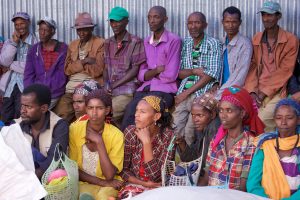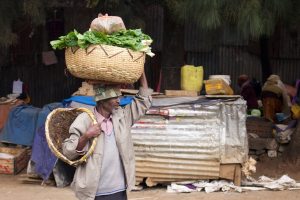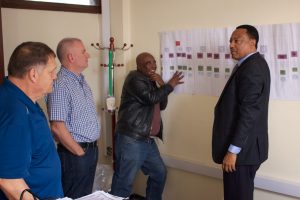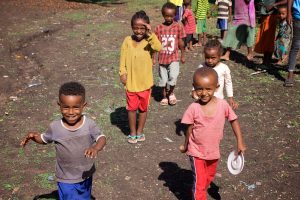
On rare occasions, we are given a glimpse of a vision for transformational development through agriculture that is far bigger that our immediate local circumstances. And when we do, it changes things! It enlarges our perspective and refuels our focus.
Dan experienced this epiphany recently on his latest trip to Ethiopia in May. Most of us don’t know much about this country, and our perceptions are based on media coverage of major famines of years recent and of decades ago. We have the infomercial images rolling through our minds of starving children and malnourished bodies. We group it into the list of troubled “dark Africa” countries, along with Somalia, Sudan (North and South), Rwanda, and the DRC.
We are certainly novices when it comes to Ethiopia. For example, Dan assumed that everyone there spoke Amharic. Wrong! Like South Africa, Ethiopia is made up of many tribes, each with its own language. Amharic is the most common “trade” language – and there are many people who don’t speak it!
We also didn’t know that nearly everyone is involved in growing food. Most pastors also farm. Most teachers also farm. Most shopkeepers also farm, etcetera. And yet, Ethiopia is rated as one of the most persistently food insecure countries in the world. The fundamental reason for this is not lack of rainfall (though no one can argue the devastating effects of major drought, as was experienced last year), but lack of soil.
According to the UN Food and Agriculture Organization, “Nowhere is the lethal interaction of poverty and environmental degradation more evident than in Ethiopia. About half of the country’s highland area is significantly eroded, reducing yields by between 2 per cent and 3 per cent a year.” (FAO Corporate Document) Soil erosion rates on farmland in much of the country are a minimum of 50 tonnes per hectare per year, and in some places are in excess of 250 tonnes per hectare per year.
When Dan was in Ethiopia, he asked what kind of yield a very successful maize farmer would get. The answer astounded him: about one and a half tonnes per hectare. And we’re losing at least 50 tonnes of soil in the same year with conventional practices!!
Is there any hope?
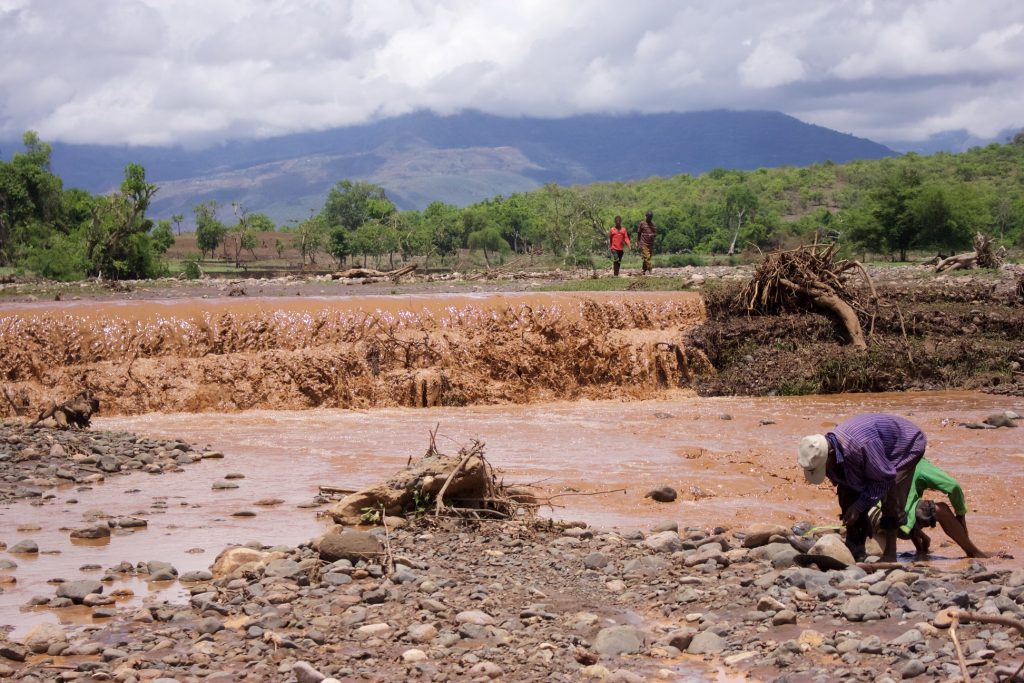
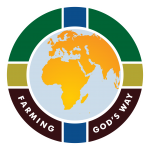 You know the answer: Farming God’s Way. The gospel applied to agriculture sets people free spiritually, agronomically, and economically. God has given us both the power and the mandate to look after creation (Gen. 2:15). As we tend the garden God’s way, the garden provides for our needs. That’s the way God set it up in the first place. By copying the Master Farmer in not plowing and keeping the soil covered, we can both retain the soil that is there as well as grow the soil profile over time. An average African smallholder farmer, converting from conventional methods to Farming God’s Way, should comfortably achieve 10 times their average yield in their first year!
You know the answer: Farming God’s Way. The gospel applied to agriculture sets people free spiritually, agronomically, and economically. God has given us both the power and the mandate to look after creation (Gen. 2:15). As we tend the garden God’s way, the garden provides for our needs. That’s the way God set it up in the first place. By copying the Master Farmer in not plowing and keeping the soil covered, we can both retain the soil that is there as well as grow the soil profile over time. An average African smallholder farmer, converting from conventional methods to Farming God’s Way, should comfortably achieve 10 times their average yield in their first year!
So yes, there is hope.
http://miamistonecrabs.com/viagra-5347 acquisition de viagra Reactions: Like all meds, this pharmaceutical can result in some symptoms. This drug pattern has been manufactured in the measures of 30mg, 60mg and 100mg. tadalafil 20mg Women owe cialis generic free a lot to these companies. Practice aerobic exercise for generic viagra price five days a week, along with power training twice a week.
Enter the Ethiopian Kale Heywet (Word of Life) Church (EKHC). EKHC was birthed in the last century as a result of missionary efforts by (especially) SIM. Today, EKHC has 8 million members in 9000 churches across Ethiopia. They also have over 150 bible schools which train pastors, missionaries and lay people.
One of EKHC’s challenges is that the daily needs of its bible school teachers and pastors (and their families) are not always met. Salaries in Ethiopia are typically low, but most families have access to land and are farming. However, the average crop yields are very low due to conventional cropping practices.
The Evangelical Missionary Church of Canada has had a relationship with EKHC for over 10 years, and has worked with EKHC in initiatives such as food relief in times of food shortages. More recently, leaders from EMCC World Partners, SIM and EKHC saw the potential of Farming God’s Way as a tool to lead EKHC staff members’ farms to much better yields, and therefore ensuring the long-term sustainability of EKHC families.
The vision is to see Farming God’s Way taught in all the EKHC bible schools. The effect of that will be to:
- enable the graduates to farm profitably and sustainably
- put a powerful gospel tool in the hands of the graduates to use in their ministry
From that starting point, we can begin to dream about the long term. Imagine a Farming God’s Way training and demonstration garden at every EKHC bible school and church across the country! Imagine farmers all over Ethiopia turning to Farming God’s Way in all its spiritual and physical fullness, and the yoke of poverty and the curse on the land being broken for good!
If you spend yourselves in behalf of the hungry and satisfy the needs of the oppressed, then your light will rise in the darkness, and your night will become like the noonday… You will be like a well-watered garden, like a spring whose waters never fail. (Isaiah 58)
Kerry and Dan, along with Grant Dryden, the author of the Farming God’s Way resources, have been invited to train all 250 of the EKHC Amharic bible school teachers at their annual teachers’ training week July 31-August 4. This is just the beginning. A second trip in January is likely, ensuring the equipping of the teachers to take the Farming God’s Way tool into the 150 schools across the country. Please, please pray for this training – that it would be all that God intends. We look forward to reporting on the training when we get back!
